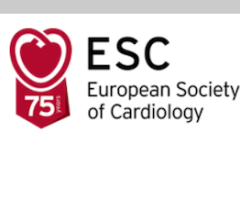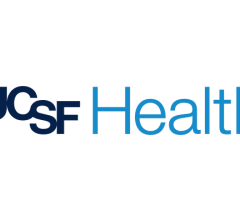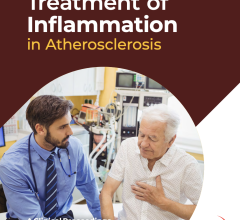
The impact of statin use to prevent heart damage during a cancer patient’s chemotherapy was in focus during a late-breaking scientific session, on the STOP-CA Trial, presented at the American College of Cardiology’s Annual Scientific Session Together with the World Congress of Cardiology, ACC.23/WCC, being held March 4-6 in New Orleans, LA. Photo credit: Getty Images
March 4, 2023 — The impact of statin use to prevent heart damage during a cancer patient’s chemotherapy was in focus during a late-breaking scientific session, on the STOP-CA Trial, presented at the American College of Cardiology’s Annual Scientific Session Together with the World Congress of Cardiology, ACC.23/WCC, being held March 4-6 in New Orleans, LA.
In “Statins to Prevent the Cardiotoxicity from Anthracyclines: The STOP-CA Trial,” researchers found that among people receiving chemotherapy regimens containing anthracyclines for lymphoma, those who took the cholesterol-lowering drug atorvastatin for one year were significantly less likely to show evidence of heart dysfunction than those who took a placebo. These data from the randomized clinical trial with enrolling sites in 9 U.S. and Canadian centers represented a highly relevant study population, and support the use of atorvastatin among patients with lymphoma being treated with anthracyclines where prevention of cardiac systolic dysfunction is important, noted the study’s authors.
The study findings were shared during the first day of the global conference of cardiologists, ACC.23/WCC, presented by co-lead author, Tomas G. Neilan, MD, MPH, FACC. Neilan is Associate Professor of Medicine at Harvard Medical School, the Director of the Cardio-oncology Program at Massachusetts General Hospital, Co-Director of its Cardiovascular Imaging Research Program and the Associate Director of the MGH T32 Training Program in Cardiovascular Imaging. Neilan noted that there are an estimated 90,000 cases of lymphoma every year in the United States.
Damage to the heart is a relatively common side effect of anthracycline treatment and can lead to heart dysfunction and then heart failure, a condition in which the heart muscle becomes too weak to pump blood effectively, noted the researchers. The trial results suggest that statins can help to lessen the effects of this cardiac damage, particularly in people who are at elevated risk of heart problems due to older age, higher body mass index or taking higher doses of anthracyclines, according to researchers.
“We believe that patients with lymphoma who are treated with anthracyclines and are at high risk of cardiac dysfunction and heart failure would benefit from statin therapy,” said Marielle Scherrer-Crosbie, MD, professor of medicine, attending physician and Director of Echocardiography at the Hospital of the University of Pennsylvania and the study’s co-lead author. “I think it’s an impactful study that will lead to more prescription of statins in patients.” Scherrer-Crosbie serves as an attending Physician, and as Director of Echocardiography at Penn Cardiovascular Institute.
For the new trial, called STOP-CA, funded by the National Institutes of Health National Heart Lung and Blood Institute (NHLBI), researchers enrolled 300 patients with lymphoma undergoing treatment with anthracyclines at a median dose of 300 mg/m. Half were assigned to take 40 mg of atorvastatin and half took a placebo daily, starting before their first dose of anthracyclines and continuing for one year. Patients’ left ventricle ejection fraction (LVEF)—a measure of the heart’s pumping ability—was assessed at baseline and one year. A total of 286 patients completed the study.
The trial’s primary endpoint was the proportion of patients who experienced a decline in LVEF of 10% or more (to less than 55%, near the lower limit of normal LVEF) from baseline to one year. This degree of reduction occurred in only 9% of those taking atorvastatin, whereas patients taking a placebo were nearly three times as likely (22%) to see this level of LVEF decline. The trial’s secondary endpoint, a reduction in LVEF of 5% or more to less than 55% from baseline to one year, was also significant in favor of atorvastatin.
“This effect will also need to be confirmed in terms of symptomatic heart failure, but the endpoint we chose is clinically relevant because those rates of decline in LVEF are associated with later symptomatic heart failure,” Scherrer-Crosbie said. “There is a clear protective effect of atorvastatin in terms of cardiac dysfunction in patients with lymphoma treated with anthracyclines.”
According to the researchers, the results showed no significant difference in the rates of adverse events such as muscle pain or renal failure.
At one year, patients who took statins had an average ejection fraction that was 1.3% higher than patients who took a placebo. This absolute difference between the two groups was statistically significant; however, researchers said it is not a large enough magnitude to be clinically relevant when viewed across the entire patient population, though the difference may be greater among subgroups of patients. This finding underscores the importance of identifying and treating populations of patients that might benefit most from statins, researchers said.
Further studies are needed to elucidate which subgroups of patients may benefit most from statin use and examine whether statin therapy prevents symptomatic heart failure. Researchers also said the current study excluded people with below-normal LVEF at baseline and those with an indication for statins, meaning the population of patients included likely had better overall heart health than the general population of people with lymphoma. Additionally, it was noted that more research is needed to determine the optimal timing and duration of statin therapy during cancer treatment to assess whether statins are beneficial in children treated with anthracyclines and to determine whether the benefits observed in this study extend to other cancer types.
Anthracyclines are the most common chemotherapy used to treat lymphoma and are also used for several other cancer types. Researchers have long sought interventions to reduce the risk of cardiac toxicity associated with this class of drugs, with limited success. Another recent study, which had a different endpoint and largely focused on patients treated for breast cancer, found that statins did not reduce cardiotoxicity. Compared with breast cancer, treatment strategies for lymphoma more often include anthracyclines and involve higher doses of these drugs.
In sharing the research findings during the first portion of the ACC.23/WCC late-breaking clinical trial session, Neilan acknowledged and expressed appreciation for the impact of the review process at NIH, noting that the reviewers asked to consider a different primary outcome, which had a major positive effect.
Neilan and other presenters of the ACC.23/WCC late-breaking clinical trial session were introduced by Valentin Fuster, MD, PhD, Editor-in-Chief of the Journal of the American College of Cardiology (JACC) and President, Mount Sinai Heart, and Physician-in-Chief of The Mount Sinai Hospital (NY, NY). Fuster was introduced by ACC President Ed Fry, MD, Chair of the Ascension National Cardiovascular Service Line (Indianapolis, IN).
More information: acc.org


 February 04, 2026
February 04, 2026 









